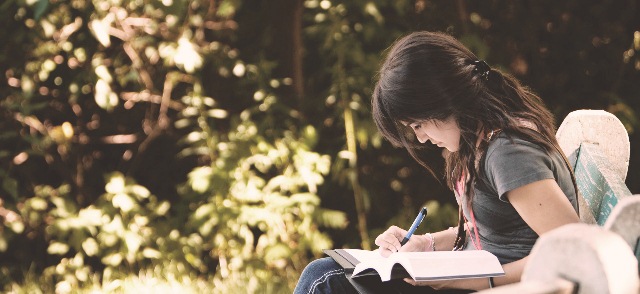
11 Sept 2014 by Lim Poh Ann-
When believers study the Word, they are guided into the truth by the Holy Spirit who is our Teacher. If that is so, do they still need to depend on teachers or other members in the body?
The Bible is the only book whose author, the Holy Spirit, is always at our disposal, helping us understand its contents. Each time we study God’s Word—besides meditating on it and keeping it—we should be able to receive fresh revelations.
The condition is that, if we want to be taught by the Author, we must abide in Christ and be pure in heart.

If we merely use our intellect to study this book, we will not get very far. We need the Author to illumine our understanding because the contents are meant for the spiritually discerning:
These things God has revealed to us through the Spirit. For the Spirit searches everything, even the depths of God. For who knows a person’s thoughts except the spirit of that person, which is in him? So also no one comprehends the thoughts of God except the Spirit of God (1 Corinthians 2:10-11).
But the Helper, the Holy Spirit, whom the Father will send in my name, he will teach you all things and bring to your remembrance all that I have said to you (John 14:26).
When the Spirit of truth comes, He will guide you into all the truth, for He will not speak on his own authority, but whatever He hears he will speak, and He will declare to you the things that are to come (John 16:13).
But the anointing that you received from him abides in you, and you have no need that anyone should teach you. But as his anointing teaches you about everything, and is true, and is no lie—just as it has taught you, abide in him (1 John 2:27).
What a glorious privilege that we can always consult the Author of this book whenever we study it.

If that is so, does it mean we can do away with teachers?
No, we need to recognise the place of teachers in the church (Ephesians 4:11-14) and accord to them due respect (1 Timothy 5:17).
And he gave the apostles, the prophets, the evangelists, the shepherds and teachers, to equip the saints for the work of ministry, for building up the body of Christ, until we all attain to the unity of the faith and of the knowledge of the Son of God,to mature manhood, to the measure of the stature of the fullness of Christ, so that we may no longer be children, tossed to and fro by the waves and carried about by every wind of doctrine, by human cunning, by craftiness in deceitful schemes (Ephesians 4:11-14).
Let the elders who rule well be considered worthy of double honour, especially those who labour in preaching and teaching (1 Timothy 5:17).
Teachers are specially gifted in the study and exposition of scriptures. Consider the role played by Ezra, the scribe, who “had set his heart to study the Law of the Lord, and to do it and to teach his statutes and rules in Israel” (Ezra 7:10). They are the specialists, if you may, in the area of studying and understanding God’s laws, ways and requirements for His people.

Now let’s consider another teacher, this time from the New Testament.
Apollos, a Jew, was a learned man, well-instructed in scriptures. He fervently preached in the synagogue. However his message was incomplete. He knew only the baptism of John—nothing about Christ’s crucifixion, resurrection or the power of the Holy Spirit that fell on believers at Pentecost. When tentmakers Priscilla and Aquila heard him preach, “took him aside and explained to him the way of God more accurately” (Acts 18:24-28).
Though Apollos was a teacher, he was humble enough to be corrected by the unassuming tentmaker couple. Surely there was little evidence of this attitude: Who do you think you are to point out my weaknesses?
Now we can see the corollary. Apollos was a great teacher but he too needed instruction. Not from great scholarly theologians but the most unlikely people—humble tentmakers.

Undoubtedly, each member of the body can also teach, edify and encourage one another.
Let the word of Christ dwell in you richly, teaching and admonishing one another in all wisdom, singing psalms and hymns and spiritual songs, with thankfulness in your hearts to God (Colossians 3:16).
This is the essence of ‘body life’. Every believer who recognises the enabling or empowerment of the Holy Spirit is able to minister and impart life to others within the body (2 Corinthians 3:5-6).
This does not imply that teachers have no role to play in church. It means that believers are able to receive gems ‘first-hand’ from God’s Word; we do not always have to get them ‘second-hand’ from teachers.
A baby bird swallows food masticated earlier by the mother. But when it grows up, it should be able to feed itself. So too we should be able to feed ourselves spiritually. For we have the anointing within.

Let’s not only aspire to be self-sufficient but advance towards maturity:
For though by this time you ought to be teachers, you need someone to teach you again the basic principles of the oracles of God. You need milk, not solid food, for everyone who lives on milk is unskilled in the word of righteousness, since he is a child. But solid food is for the mature, for those who have their powers of discernment trained by constant practice to distinguish good from evil (Hebrews 5:12-14).
In fact, we are told to emulate the wise and discerning Berean believers who were diligent in examining the teacher’s message against the Word.
It is this universal anointing upon believers—as opposed to the special anointing on those called to be teachers—which will enable the church to stem the tide of false teaching (destructive heresies) which is threatening to destroy the church today.

To recap:
- Every believer can study and understand what the Bible says because he has the help of the ultimate Guide, the Holy Spirit. He should not feel completely helpless that he cannot feed himself spiritually.
- Having said that, it does not mean he cannot benefit from the ministry of renownedteachers such as A. W. Tozer or Derek Prince. The distinctive role of teachers in the church is not undermined by the foregoing.
- Neither does it mean a believer cannot benefit from instruction, sharing and encouragement from fellow believers—the activation of body life—as we are all part of His body and none can claim he has the monopoly of truth.
RELATED POSTS
We ourselves are primarily responsible for our own spiritual development.
How to develop discernment and escape the clutches of destructive heresies
Understanding the wiles of satan is the first step towards winning the battle against deception.
What’s so noble about the Bereans?
When satan puts negative, discouraging or destructive thoughts in our minds, it’s time to declare God’s word to counter his lies. Be prepared. Be equipped.
| Share the Good News |
ABOUT Author: Dr Lim Poh Ann is a medical practitioner. He was the former editor of Asian Beacon magazine (December 2008 – October 2011). He can be reached at his blog, Porridge for the Soul




thanks
The intriguing verse that state we do not need anyone to teach us can be seen in 1 Jn 2:27. Baker’s New Testament commentary seems to point to right direction: “the anointing power” (1Jn 2:27) as well as “to know Him” (Jer 31:34; Heb 8:11). Reworded, we need no one else for that anointing power to teach us to know Him.
The anomaly becomes plain if we see church teachers (or others) as faithful servants the same manner we see our government as appointed governing authority: We have one Father, one Teacher, one King.
To bring others to know Him (His way and in One big family), let us court elderlies and those neglected ones to church, spice our church activities with sampling foods together, offering helpful pointers in cellgroups etc. I can testify that during church sermons, I have experienced flash of words, bright sparks (illuminations), reminders (Jn 14:26). Let us prosper others soul – when we do it for Him, He would do His part for us too.
Regards